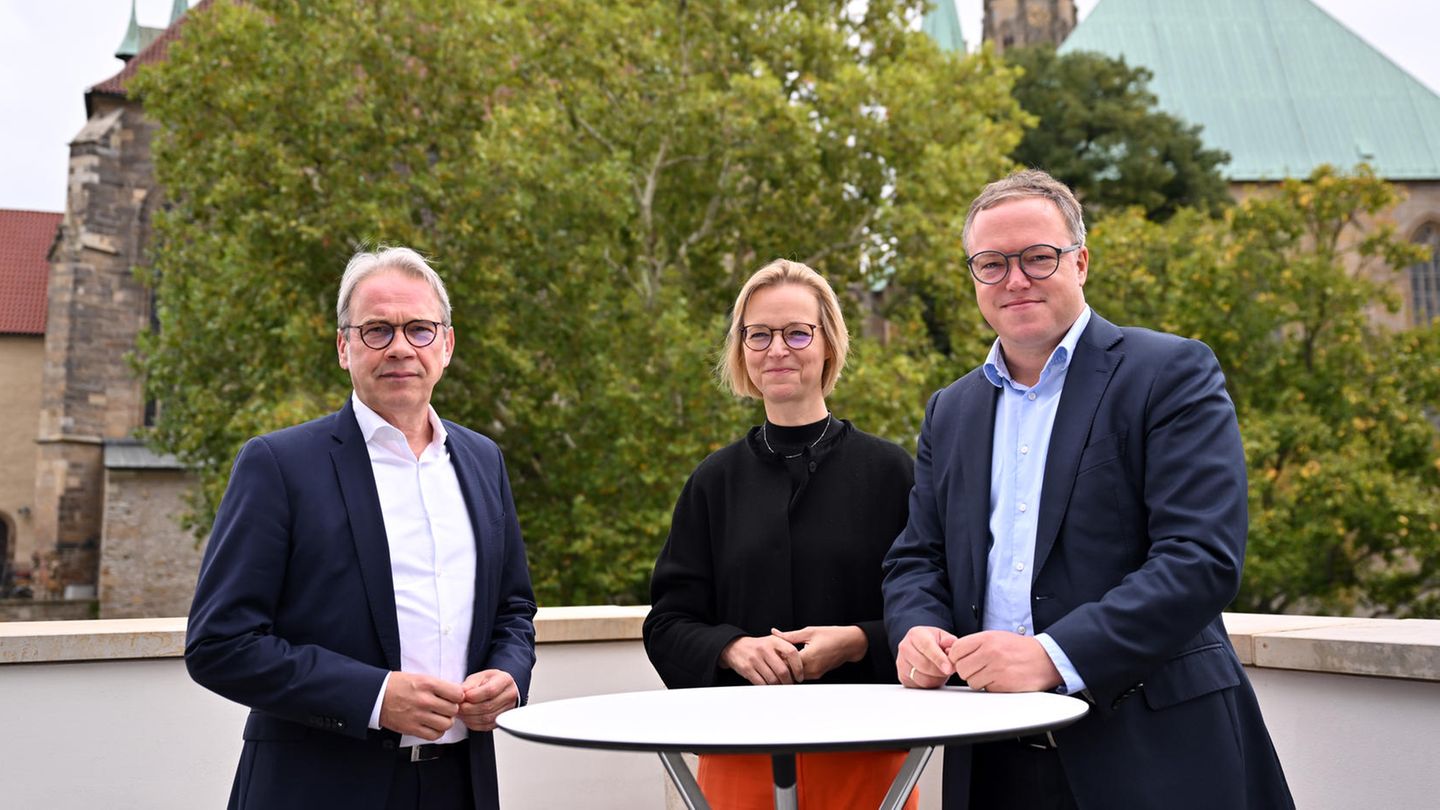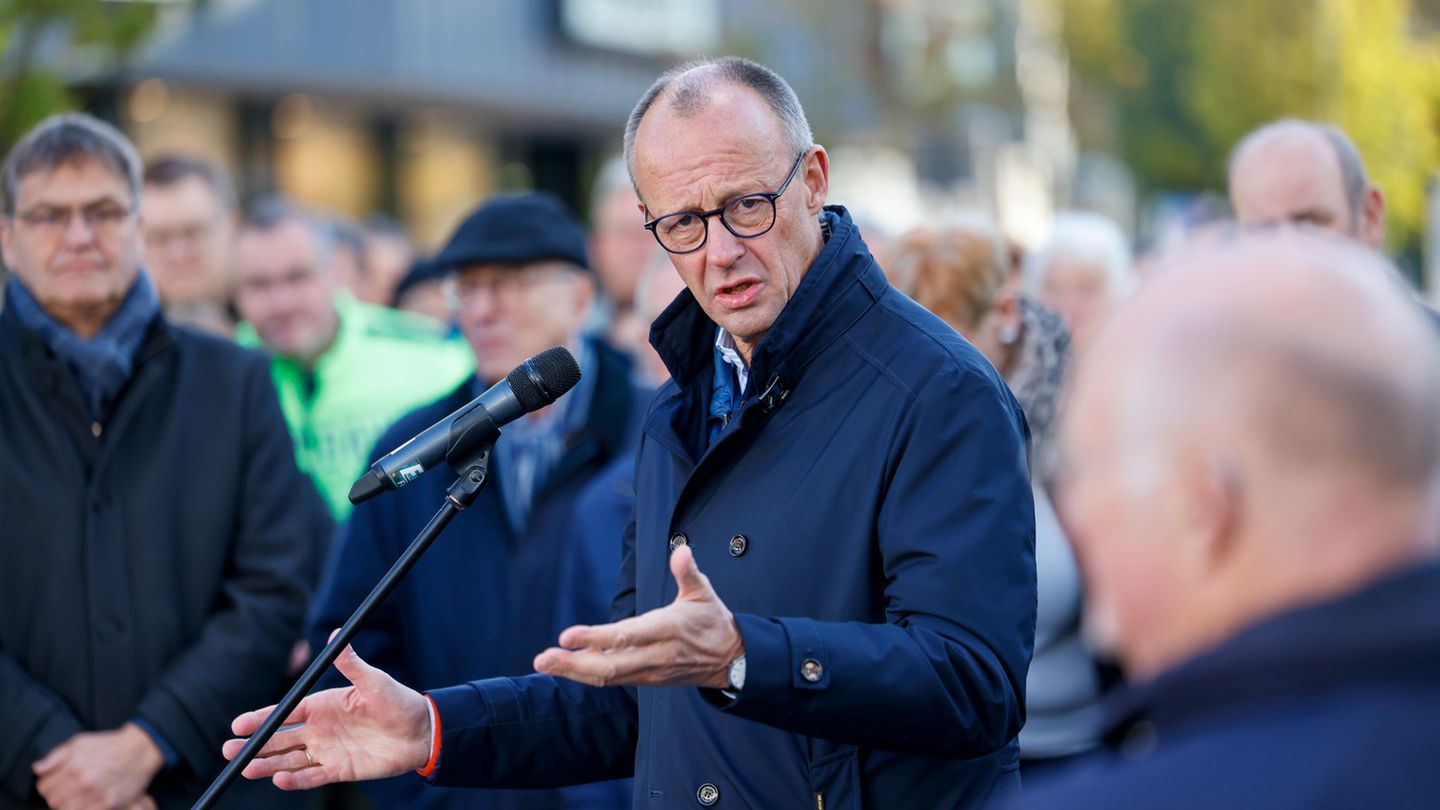Blackberry Coalition
CDU, BSW and SPD in Thuringia agree on coalition agreement
Copy the current link
A blackberry coalition is getting closer in Thuringia: the CDU, BSW and SPD have agreed on a text for a coalition agreement. Do the party committees agree?
The coalition agreement between the CDU, BSW and SPD in Thuringia is in place. A good eleven weeks after the state elections, the leaders of the three parties agreed on the draft government contract. There is only fine work to be done in the next two days, it was said from those involved after a two-day retreat between the party leaders in Ilmenau. The coalition agreement is expected to be presented on Friday. This means that a large part of the path to a new Thuringian government and possibly the first so-called blackberry coalition in Germany has been completed.
However, the approval of the party committees of all three partners is still missing. The BSW has already announced a party conference for December 7th, which will focus on the members’ approval of the coalition agreement. Unlike the exploratory paper, this time party founder Sahra Wagenknecht gave positive signals about the planned coalition agreement. The SPD is planning a member survey.
Wagenknecht sees improvements
The previous negotiations in Thuringia were influenced by Wagenknecht’s demands, especially on the topics of war and peace. The namesake of the BSW was now satisfied with the development of the discussions. According to everything she knows, her party’s planned coalition agreement with the CDU and SPD “looks significantly different than the exploratory paper. And we are very happy about that,” said Wagenknecht on the ARD talk show “Maischberger.” However, there had to be pressure for this.
The three parties had agreed on a preamble to the coalition agreement, which addressed the issue of war and peace, but had not yet satisfied Wagenknecht. The BSW wanted to readjust. Now it was said that the BSW’s peace policy positions would also play a role in the text.
According to those involved, the coalition agreement provides for concrete projects and goals in the areas of education, health, economy, migration, administrative modernization, social affairs and community development. Details were not given with reference to Friday. “We have made a good start that will noticeably improve the lives of Thuringians,” said the partners simply. The discussions were goal-oriented and pragmatic. Everyone involved has shown “that they are acting in the interests of the country across party political boundaries.”
Sahra Wagenknecht: Pictures of her life between Karl Marx and party politics

Sahra Wagenknecht: a party that bears her name
The way there was long, but in the end it happened quickly. On January 8, 2023, Sahra Wagenknecht presented her party, which is (provisionally) named after her: the “Alliance Sahra Wagenknecht – Reason and Justice”. After the PDS and the Left, it is already the third party to which she belongs. Wagenknecht celebrates her 55th birthday on July 16th
© Future Image / Imago Images
Thuringia: CDU, BSW and SPD would be dependent on opposition votes
During the two-day meeting since Monday, the layout of the ministries was also said to have been discussed. In addition to the Prime Minister, Thuringia currently has eight specialist ministries and a head of the State Chancellery with ministerial rank. Negotiating circles said that the departmental layout had not yet been finally discussed.
The CDU, BSW and SPD have 44 of 88 seats in the Thuringian parliament. A blackberry coalition named after the party colors would therefore be dependent on at least one vote from the opposition – i.e. from the Left or AfD – when making decisions.
DPA
rw
Source: Stern
I have been working in the news industry for over 6 years, first as a reporter and now as an editor. I have covered politics extensively, and my work has appeared in major newspapers and online news outlets around the world. In addition to my writing, I also contribute regularly to 24 Hours World.




